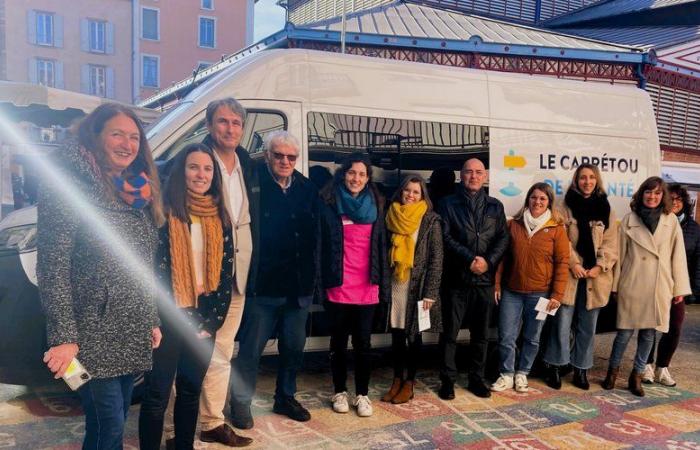
The Carrétou de la Santé will offer a space for individual interviews to support mobility towards care services and health professionals.
Promote health while taking into account the specificities of the rural world marked by a shortage of professionals and both geographical and social isolation. So much for the statement of the new system launched a month ago in the territory of the Grands Causses regional natural park: the Carrétou de la Santé.
Modeled on the local health contract (CLS) which aims, among other things, to reduce social, territorial and environmental inequalities in health, this mobile “Carrétou” will be deployed in particular in the least served villages and hamlets. By thus combining a “bring-towards” approach with a “go-towards” approach which consists, reminds the PNR of “temporarily relocate services, activities and support as close as possible to isolated audiences”.
Currently experimental – a first assessment is planned for September 2026 – this system brings together around twenty partners who will be able to intervene in three priority areas linked to mental health, awareness of health issues or prevention.
In 2023, the Regional Health Agency (ARS) and the communities of communes of South Aveyron entrusted the Local Health Contract (CLS) to the Grands Causses Regional Natural Park.
A close network between different associative and health structures which also makes the initiative unique in favor of its effectiveness. “Knowing local stakeholders well and working well together is also the strength of the Parc and Carretouvalidates Emmanuelle Gazel. Because it’s not enough to put a vehicle in a village square for it to work, it’s all the network work that will make this possible.”
Bring the actors to the heart of the village
By design, the Carrétou will be able to count on the network made up of 93 “health referents” – elected officials, individuals, presidents of associations – recruited in the eight municipalities of the PNR in order to increasingly strengthen this network for the benefit of those forgotten in the journey of care.
Able to irrigate medical deserts by trying to plug gaps in the provision of care in rural areas, confirms Philippe Poulet, responsible for the coordination of territorial policies of the Regional Health Agency (ARS), the system finally responds to mobility issues.
Isolation factor, transport perhaps “a brake on territorial attractiveness but also a strong factor of economic and social vulnerability (mobility represents up to 1/3 of the budget for distant households”validates the PNR.
Emblem of this peripheral France, transport and more specifically the car, represents in the rural territory of the Grands Causses, the first source of energy consumption – 41% compared to 35% on a national scale. “The Carrétou de la santé therefore makes it possible to reach out to those who are furthest away, concludes Lucie Bousquet, in charge of the PNR of the local health contract (CLS) whose objective is to “reduce social, environmental and geographic health inequalities.”
A truck providing access to care and mobility
The Carrétou de la Santé is part of a reverse mobility approach (out-and-out). Concretely, the service consists of bringing those involved in prevention, screening and care as close as possible to geographically isolated residents with a traveling vehicle. The Carrétou has two roles: both that of a tool for social cohesion towards collective actions for prevention, screening and health promotion, but also that of a truck providing access to care and mobility. As such, it will offer a space for individual interviews to support mobility towards care services and health professionals.





